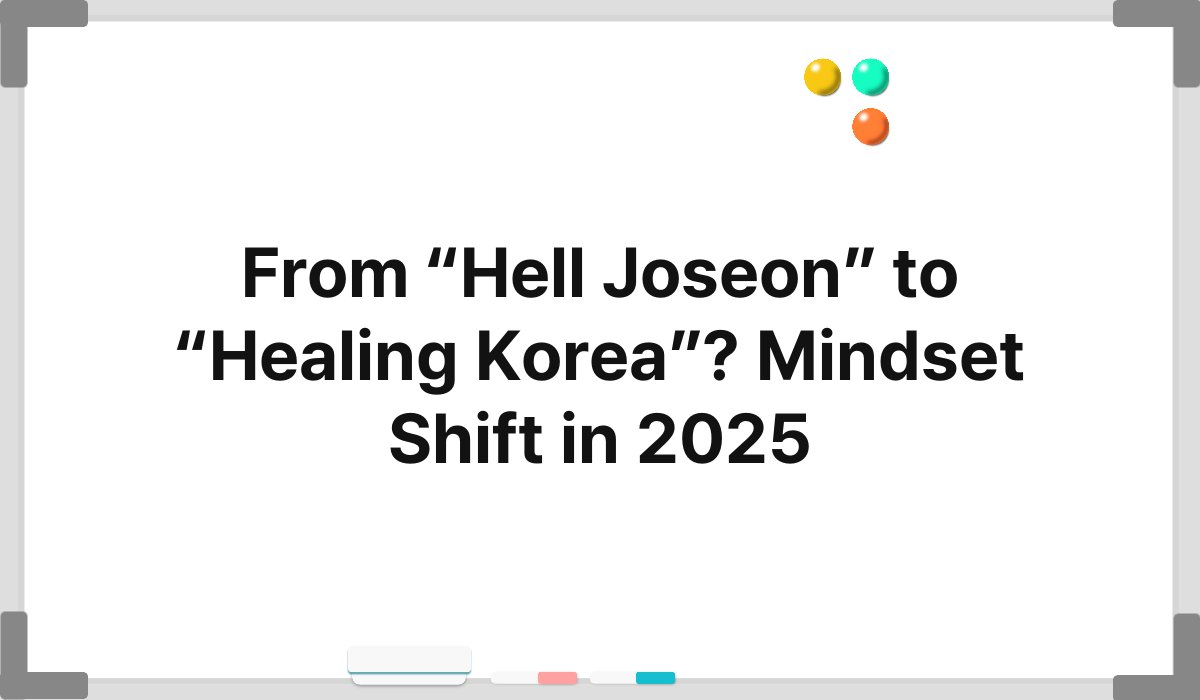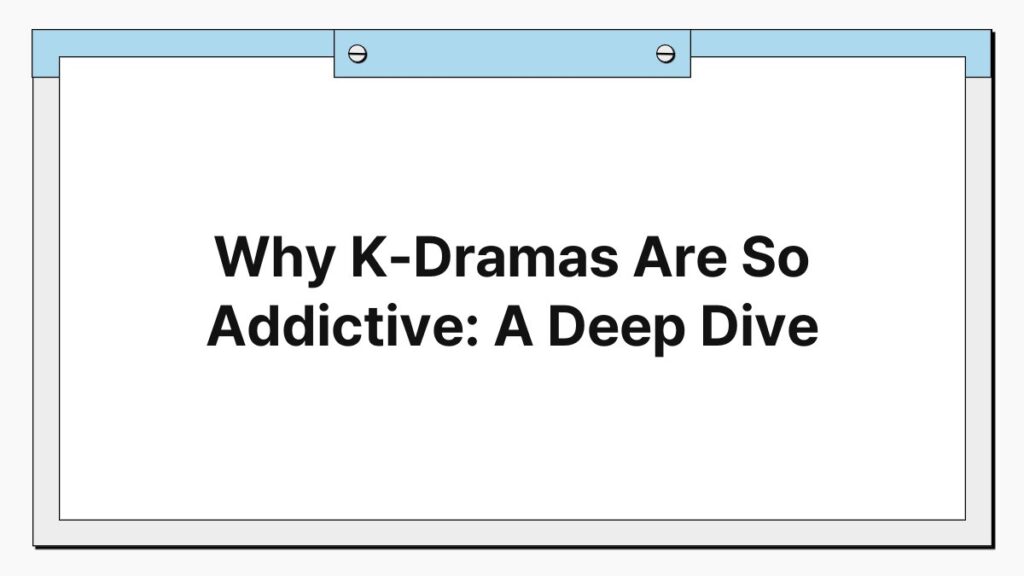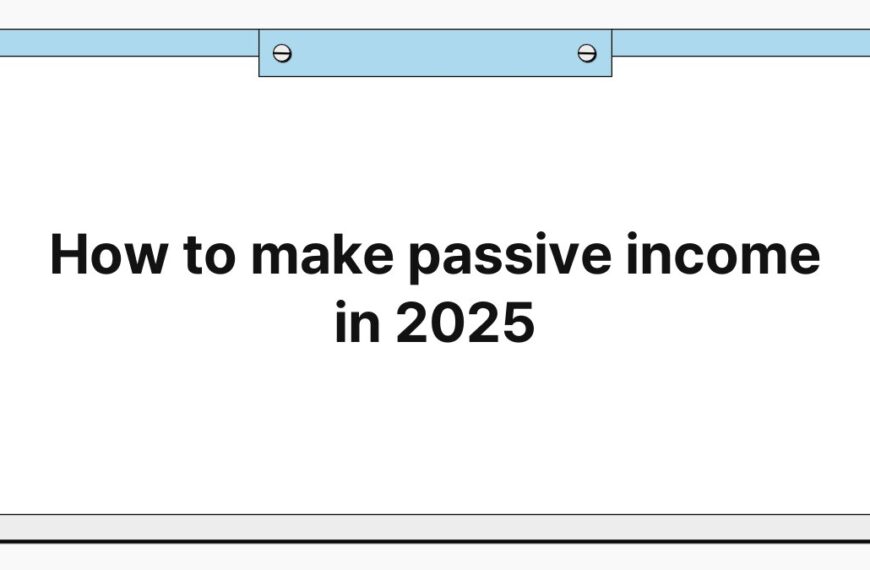[K-Bridge/Samuel] In recent years, the term “Hell Joseon” has emerged in South Korea, encapsulating the frustrations and challenges faced by the younger generation amid economic difficulties and social pressures.
This phrase reflects a mindset characterized by disillusionment and despair, as many young people struggle with high unemployment rates, soaring housing costs, and a competitive job market.
However, as we approach 2025, there is a growing discourse around the potential for a “Healing Korea” mindset.
This shift suggests a transformation from negativity and hopelessness to a more positive and proactive approach to life and society.
In this article, you will explore the factors contributing to this mindset shift, the implications for society, and how individuals can embrace a more healing perspective for themselves and their communities.
Understanding the “Hell Joseon” Phenomenon
Historical Context
The term “Hell Joseon” originated from the historical Joseon Dynasty, which is often romanticized in Korean culture.
However, the modern usage of the term highlights a stark contrast between the idealized past and the current realities faced by many young South Koreans.
Economic stagnation, fierce competition, and a perceived lack of opportunities have led to widespread feelings of disenchantment.
This sense of despair is compounded by societal expectations that emphasize success and stability, creating immense pressure on individuals to conform to certain standards.
Societal Impacts
The “Hell Joseon” mindset has significant implications for mental health among the youth.
Many individuals experience anxiety, depression, and a sense of hopelessness as they navigate a challenging landscape.
The stigma surrounding mental health issues often prevents open discussions, leading to isolation and further exacerbation of these feelings.
As a result, there is a growing need for societal change that promotes mental well-being and supports individuals in overcoming their challenges.
Cultural Reflections
Cultural expressions, such as films, music, and literature, have also mirrored the “Hell Joseon” sentiment.
Many works depict the struggles of young people, resonating with audiences who share similar experiences.
This artistic reflection serves as a form of catharsis, allowing individuals to process their emotions and connect with others facing similar hardships.
As the narrative evolves, there is potential for a cultural shift that embraces resilience and healing rather than despair.
The Shift Toward “Healing Korea”
Emerging Optimism
As we approach 2025, a new wave of optimism is beginning to emerge among the younger generation.
Many individuals are actively seeking ways to foster personal growth and resilience, moving away from the negativity associated with “Hell Joseon.” This shift is characterized by a desire for self-improvement, community engagement, and a focus on mental health awareness.
Young people are increasingly recognizing the importance of nurturing their well-being and supporting one another in their journeys.
Community Initiatives
Numerous grassroots movements and community initiatives are gaining traction, aimed at promoting mental health and well-being.
These initiatives often involve workshops, support groups, and awareness campaigns that encourage open discussions about mental health.
By fostering a sense of belonging and connection, these efforts help combat the isolation that many individuals feel.
As communities come together to address these issues, they create a supportive environment that nurtures healing and resilience.
Policy Changes
On a larger scale, there is a growing recognition among policymakers of the need to address the challenges faced by the youth.
Initiatives aimed at improving employment opportunities, affordable housing, and mental health resources are being implemented.
These policy changes reflect a commitment to creating a more supportive environment for young people, empowering them to thrive rather than merely survive.
As these changes take root, they contribute to the broader shift toward a “Healing Korea.”
The Role of Education in the Mindset Shift
Curriculum Revisions
Education plays a crucial role in shaping the mindset of future generations.
In response to the challenges associated with “Hell Joseon,” there is a movement toward revising educational curricula to prioritize mental health, emotional intelligence, and life skills.
By equipping students with the tools to navigate life’s challenges, educators can foster a generation that is more resilient and capable of embracing a healing mindset.
Encouraging Critical Thinking
Promoting critical thinking and creativity within the educational system is essential for fostering a sense of agency among students.
When individuals feel empowered to think for themselves and express their ideas, they are more likely to challenge societal norms and seek innovative solutions to problems.
This shift in educational focus encourages young people to envision a future that transcends the limitations imposed by the “Hell Joseon” mentality.
Building Supportive Environments
Creating supportive environments within schools is vital for promoting mental health and well-being.
Initiatives that encourage peer support, mentorship, and open communication can help students feel valued and understood.
By fostering a culture of empathy and understanding, educational institutions can contribute significantly to the broader movement toward a “Healing Korea.”
The Impact of Technology on the Mindset Shift
Social Media as a Tool for Connection
In the digital age, social media has become a powerful tool for connection and community-building.
Many young people are using these platforms to share their experiences, struggles, and triumphs, creating a sense of solidarity among those facing similar challenges.
This online camaraderie can foster a supportive environment that encourages healing and resilience.
Access to Resources
Technology also provides access to a wealth of resources related to mental health and well-being.
Online therapy platforms, wellness apps, and educational content are increasingly available, empowering individuals to take charge of their mental health.
By leveraging technology, young people can find the support and information they need to navigate their challenges effectively.
The Role of Digital Activism
Digital activism is on the rise, with many individuals using their platforms to advocate for mental health awareness and social change.
By raising awareness of the issues associated with “Hell Joseon,” activists are contributing to a broader cultural shift that emphasizes healing and resilience.
This movement encourages individuals to challenge societal norms and advocate for a more supportive environment for all.
Personal Stories of Transformation
Overcoming Adversity
Many individuals have shared their personal stories of transformation, illustrating the journey from despair to healing.
These narratives often highlight the importance of seeking help, building supportive relationships, and embracing vulnerability.
By sharing their experiences, individuals inspire others to confront their challenges and seek their paths to healing.
The Power of Community
Community support has played a pivotal role in many personal transformation stories.
Individuals who have found solace in their communities often describe the profound impact of shared experiences and collective healing.
By coming together, individuals can create a sense of belonging that fosters resilience and hope.
Embracing Change
Embracing change is a recurring theme in personal stories of transformation.
Many individuals recount their struggles with accepting their circumstances and the subsequent journey toward self-acceptance.
This process often involves redefining one’s identity and purpose, ultimately leading to a more fulfilling and meaningful life.
The Future of “Healing Korea”
A Collective Vision
As the movement toward a “Healing Korea” gains momentum, there is a collective vision for a society that prioritizes mental health and well-being.
This vision encompasses a commitment to fostering resilience, empathy, and support for individuals facing challenges.
By working together, communities can create an environment that nurtures healing and growth.
Long-Term Strategies
Sustainable change requires long-term strategies that address the root causes of the challenges faced by the youth.
This includes ongoing efforts to improve mental health resources, economic opportunities, and social support systems.
By investing in these areas, society can create a foundation for a healthier and more resilient future.
A New Narrative
Ultimately, the shift from “Hell Joseon” to “Healing Korea” represents a new narrative that embraces hope and possibility.
This narrative encourages individuals to envision a future that transcends despair and fosters personal and collective growth.
As society embraces this new mindset, the potential for transformation becomes limitless.
Conclusion
The transition from “Hell Joseon” to “Healing Korea” signifies a critical shift in mindset as we approach 2025. By understanding the factors contributing to this change, embracing new narratives, and fostering supportive environments, individuals and communities can cultivate resilience and healing.
This journey is not only about overcoming challenges but also about envisioning a brighter future that prioritizes well-being and connection.
As we move forward, the collective efforts of individuals, communities, and policymakers will play a vital role in shaping a society that thrives on hope and healing.








